If We Don't Start Defining Free Speech, We Are in Danger of Losing It
It doesn't take a sociologist to tell us we are at a breaking point.
On March 25th, 1811, Romantic poet Percy Bysshe Shelley and his friend Thomas Jefferson Hogg were theatrically expelled from University College, Oxford. Shelley was barely two terms into his first year of undergraduate studies, and now he was rattling back to London in a post-chaise with his tail between his legs.
In addition to “contumaciously refusing to answer questions,” he’d committed that other act of 19th century defiance: free speech. Shelley was an avowed atheist during a time when being an atheist could get you run out of a country. He’d also written a pamphlet entitled The Necessity of Atheism, which he offered for sixpence a copy and put in a shopwindow on Oxford High Street. A senior member of the university who happened to be passing by spotted the pamphlet and went apoplectic, demanding that the stock be incinerated, but Shelley had already sent copies to “every bishop in the kingdom,” the head of Oxford College, and various other religious dignitaries, inviting them to respond.
Respond they did, by expelling him forever.
Since the dawn of man, it would seem, people have been speaking their minds and being smote for it. Taken on the aggregate, we humans do not enjoy dissenting opinions. Just yesterday, I weighed in on a friend’s Facebook post only to have him remove my comment minutes later. He was perfectly within his rights to do so, and I bear him no ill will, but since his thread was about the inability of jazz musicians to listen to other jazz musicians while playing onstage, the irony was pretty obvious. In life, I have discovered, a blind man will rarely thank you for a mirror.
And now in an orgy of “free speech,” there’s the implosion of Twitter.
Things are going swimmingly over there. New Twitter CEO Elon Musk seems determined to burn the platform to the ground. Even before he showed up on his first day at Twitter headquarters lugging a sink (his groan-worthy pun, which he gleefully tweeted, was “Let that sink in”), he’d made it clear where his Free Speech Juggernaut was headed. He first reinstated Donald Trump, which surprised no one, and a few days after that, Marjorie Taylor Green.
The fact that Trump committed treason against his own country by inciting the January 6 riot that left seven people dead and over 100 others injured is of no consequence to Musk. Nor is the fact that Marjorie Taylor Green pantingly supported this attempted coup.
Musk is an agent of chaos. He’s rich, he’s bored, he’s already bought everything and everyone, so what other amuse-bouche will fill the howling abyss inside his shriveled crypto-nihilist heart? He cares nothing for democracy or free speech, especially when that free speech is directed toward him. In addition to alienating advertisers (over a hundred major companies refuse to advertise on the platform now) and hemorrhaging users (well over a million so far, who are the de facto content producers and therefore unpaid employees of the platform), Twitter has devolved into racial slurs, anti-Semitic tropes, and cryptocoin-come-ons.
There are credible theories afloat that it was Musk’s intention was to bankrupt Twitter all along. People are mourning a platform that for better or worse will never return to its former glory. To think that one 280-character tweet once had the power to ignite Arab Spring, demand justice for Ahmaud Arbery, light the powder keg that was #MeToo—even for those of us who view social media with suspicion, it was inspirational. But that’s all gone now thanks to the thin-skinned avarice of one pasty South African trust fund baby who can’t handle criticism.
And I’d like to thank him.
Don’t get me wrong—Elon Musk is still a charm vacuum—but in keel-hauling Twitter, he has unintentionally started a conversation about the very real limits of free speech.
Intolerance and bigotry are not free speech. Members of the intellectual dark web clutch the soiled petticoats of free speech and howl in protest every time someone calls them out on their racist dog whistles. White supremacist and Trump dinner companion Nick Fuentes, for instance, whose father is Mexican, says without a trace of irony, “The Founders never intended for America to be a refugee camp for nonwhite people.” Our kneejerk response is to roll our eyes at him, sure, but to defend his right to say whatever he wants, no matter how opprobrious.
Why? Our First Amendment.
But on an April taping of his podcast, “America First,” Fuentes responded to an audience member complaining about his wife “getting out of line” by saying, “Why don’t you give her a vicious and forceful backhanded slap with your knuckles right across her face – disrespectfully – and make it hurt? ... Just kidding, of course … just a joke … I would never lay a hand on a women, unless she had it coming.”
Now, I could give you some dreary, long-winded, wholly hypocritical speech about the intellectual laziness and dishonesty of ad hominem attacks (an ad hominem argument is a rhetorical device wherein the speaker attacks the person making an argument instead of addressing the substance of the argument itself), but to tell you the truth, I am the Heavyweight Title Holder of ad hominem attacks, especially on social media. The difference between me and most of the millions of other people who make them is I’ll actually say those awful things to your face. Not proud of it, but I own my frailties.
Yet, I’m just a writer with a newsletter. What happens when the president of the United States makes ad hominem attacks on Americans? Or when Fox News wildly conflates opinions with “news”?
Should public officials be legally held to a higher standard?
In a word—yes. It’s one thing for us unimportant primates to sling fecal matter inside our digital cage and quite another for a U.S. president or an entertainment network masquerading as a serious news organization to do it. Last year, The New York Times compiled a complete list of former president Donald J. Trump’s Twitter insults between the years of 2015-2021. It’s quite a document.
We have no laws restricting the speech of an American president. Prior to Trump, there had never been a need to do so. Candidates tended to speak glibly—perhaps too glibly—and in a political language that purposely rounded down the edges. Then Trump came in with his “refreshing candor” and blew the lid off political doublespeak. The problem was, he took civility with it.
Fox News, especially personalities like Tucker Carlson and Sean Hannity, position themselves as straight shooters, but the facts show otherwise. Here is Fox News’s truth and credibility rating, per Mediabias, a non-partisan organization that keeps tabs on journalists and journalism. The only thing redeeming Fox News has at this point is its cadre of beat reporters who apparently do a competent job of reporting straight news.
To be fair, my go-to station, MSNBC, doesn’t fare much better, although they aren’t considered a “Questionable Source” like Fox News.
These are the organizations we depend on to deliver news to Americans who are too exhausted to read it for themselves. Don’t you think there should be some kind of a journalistic standard to which a news organization must be held? I do. Don’t you think a president of the United States, a member of the Senate, or a congressperson ought not be allowed to verbally insult the people he or she is elected to govern? I do.
This isn’t a free speech issue. It’s a public service issue. We need laws governing the behavior of those we elect to govern ourselves. The minute an elected official sets foot inside a government building, he or she must be held to a higher standard, even if it temporarily impinges on the right to free speech. Failure to hold Colorado Representative Lauren Boebert accountable for the bigotry that comes out of her mouth incentivizes the worst among us to show up at Nancy Pelosi’s house in San Francisco and take a hammer to her eighty-year-old husband’s head.
This is where we’re at now. These are the fruits of “free speech.”
And here’s where I level a finger at all the rest of us, conservative and liberal alike.
When we find ourselves triggered by the things people say, we need to own that instead of expecting them to change. No one should be #cancelled without a chance to defend him/herself. Having said that, I realize rational, well-argued discourse is at an all-time low these days, and that it’s impossible to fully explore the nuances of thorny problems (immigration, say) in a tweet of 280-characters or less, a TikTok video, or a Facebook post. But we need to start making distinctions between hate speech and free speech. As in we need to define it legally.
Twenty years ago, free speech versus hate speech wasn’t an issue. But now that we have social media and the wild horses are rampaging, we had better establish some guidelines, starting with a legal parameter for news organizations and public officials. With this Supreme Court, it seems unlikely we will get what we’re looking for, but if we get the ball rolling now, by the time legal challenges are mounted, there might be some new faces there.
The great irony is that America’s most illustrious achievement, free speech, is being weaponized against us by malevolent anti-democracy forces like China and Russia. They purposely bot farm us with hate speech that stirs the already-boiling pot of dissent. For all I know, we’re doing the same to them.
And yet, oddly, the only way we’re going to save free speech and democracy is by drawing a line in the sand between hate speech and free speech. We are not powerless in this. But we must start at the very top.
Trickle-down economics may have been a disaster, but trickle-down decency will likely save us all.
Copyright © 2022 Stacey Eskelin
I want to hear your thoughts on this subject—it’s so important. Please leave them in the comments section below.


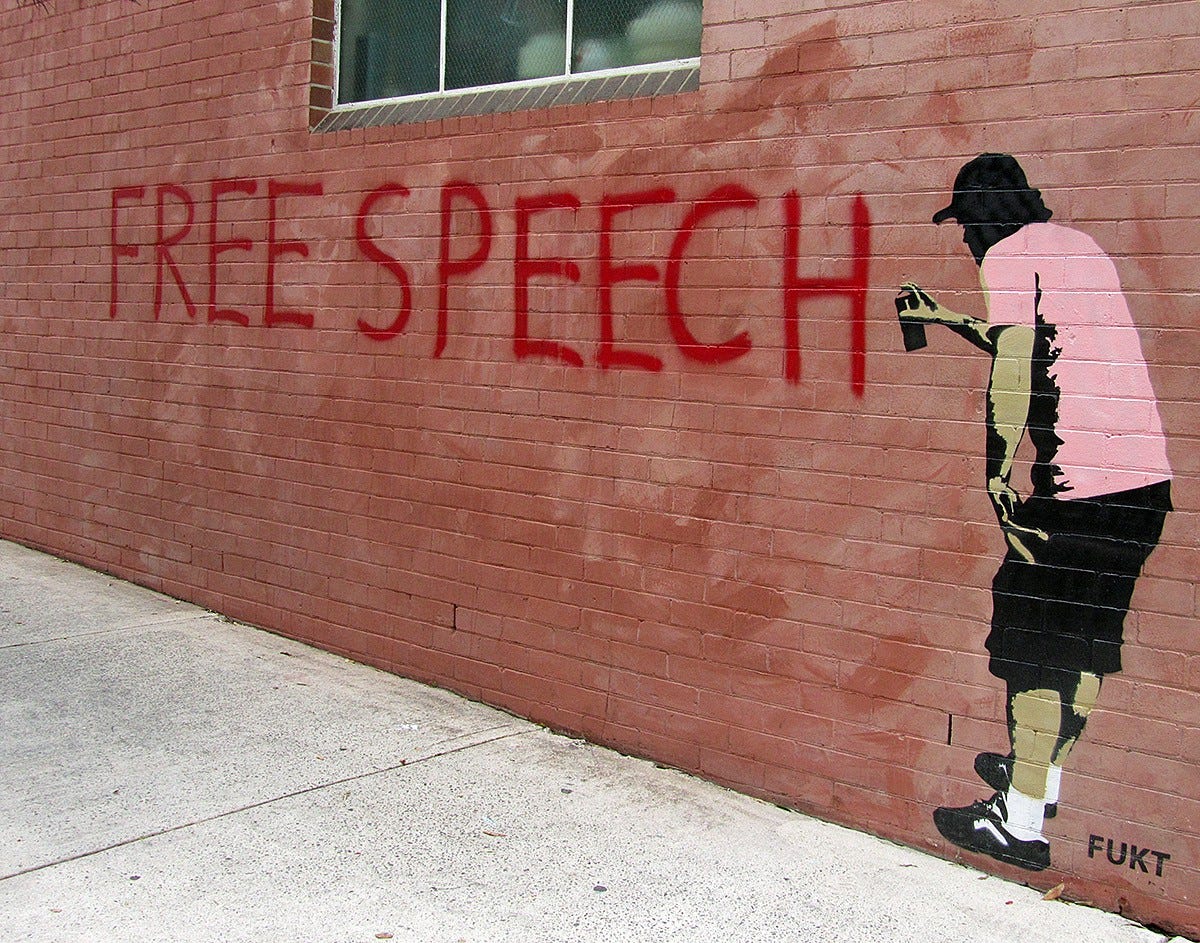
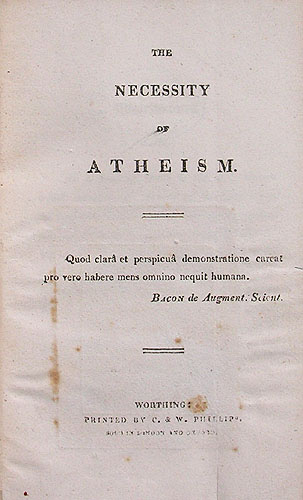

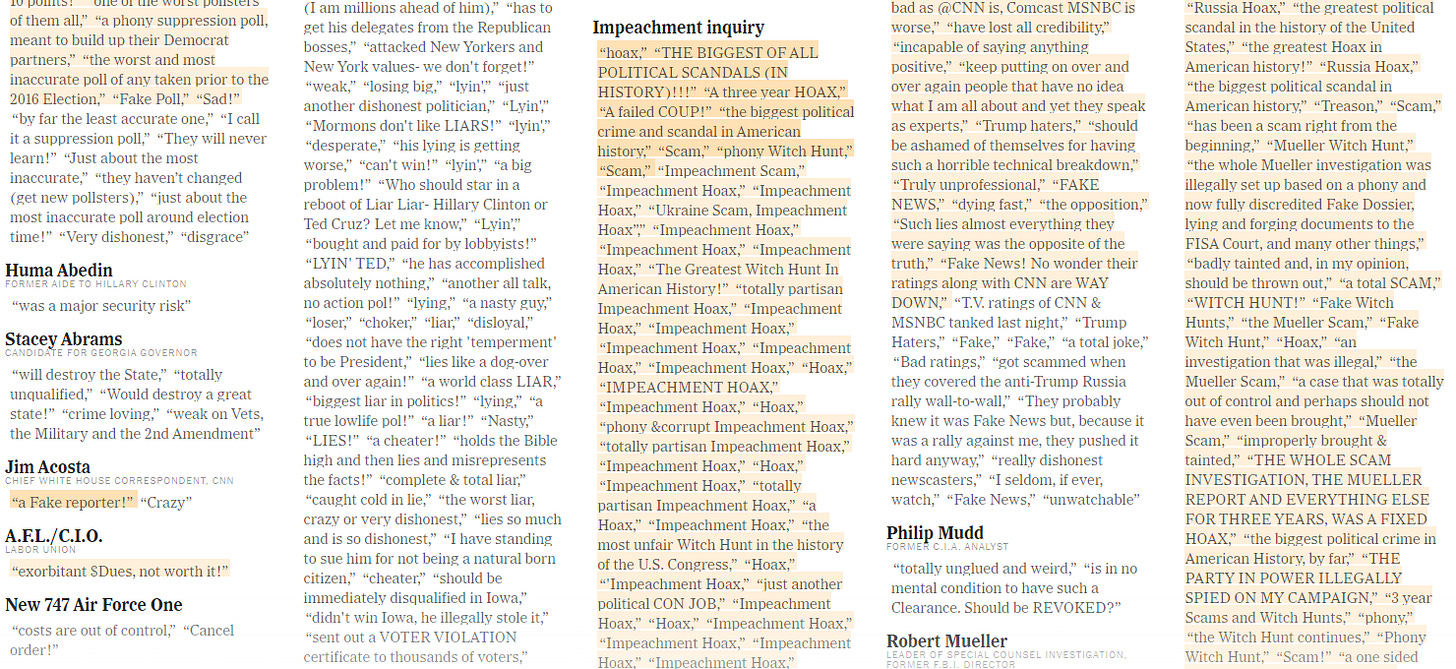
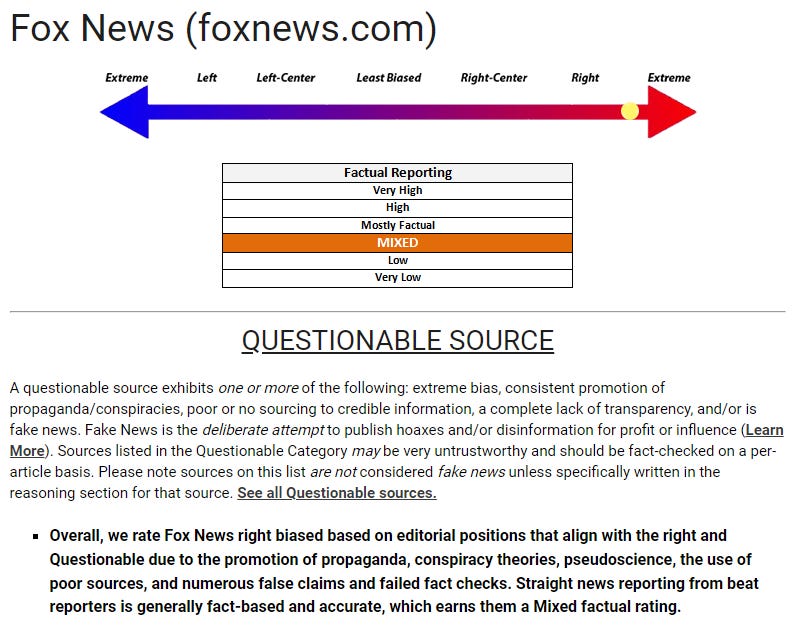
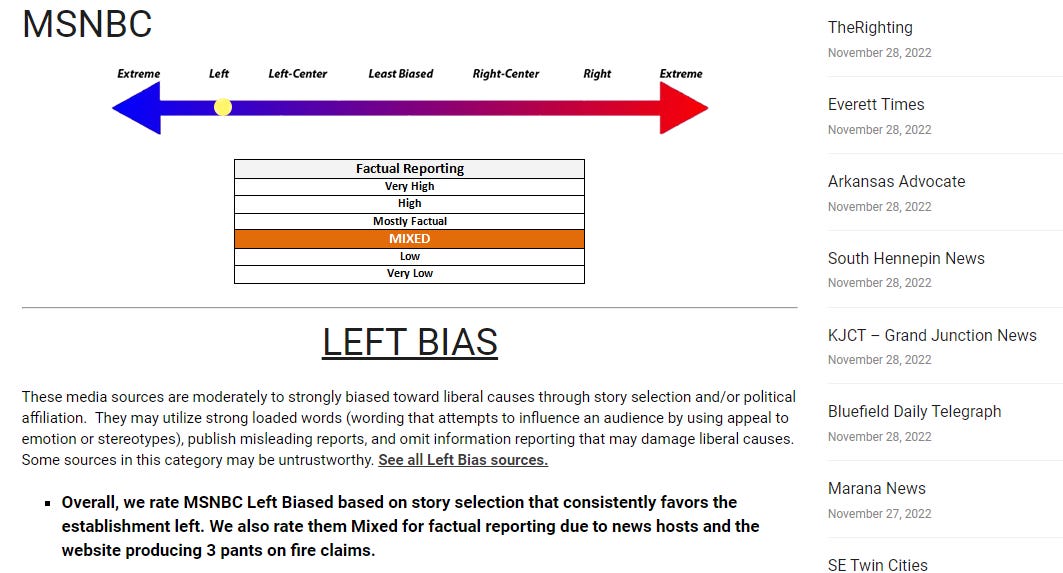
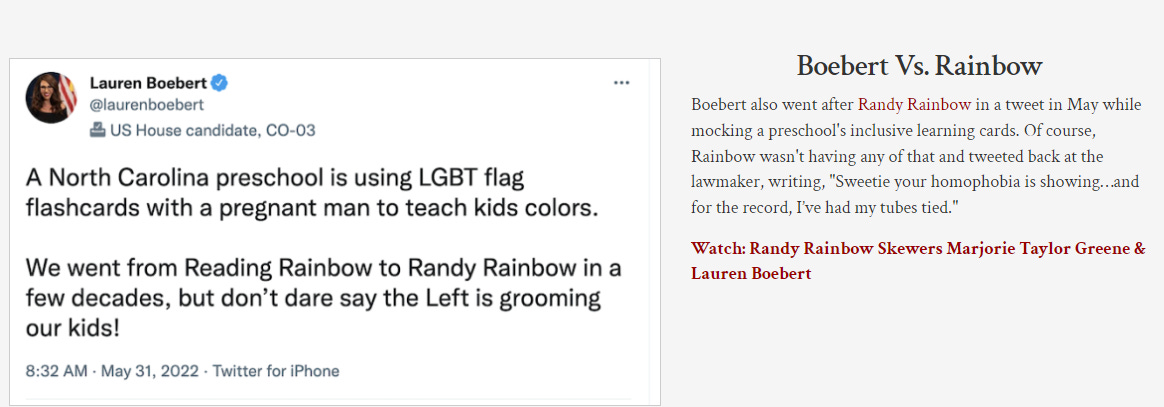
This subject is an enigma that certainly needs solving. The idea of holding public officials to a higher standard of ethics is a start, perhaps like the Hippocratic Oath. If you’re representing people and committing malfeasance, there has to be accountability. Especially when your words are a direct result of impacting dire consequences to others that prefer an all inclusive civil environment. Teachers teach with ethical standards, as to enlighten one’s mind of growth and knowledge as a tool of self governing power. Some politicians ( and we know who they are) dumb you down to hold on to power. Higher education and lower legislation seems to be a major cog in the enigma. Bring on the Game of Thrones naked walk of shame in Congress, or perhaps the Inglorious Bastards forehead carving for accountability. Practical, no. Deserved, fuck yes!
I am no philosopher, but I can cluck like a plucked chicken. Ad hominem arguments aren't my bag, but I am acquainted with glory holes and slippery arguments. I walk softly and carry a stick.
Seems to me that the Founding Fathers could not have anticipated that office holders from the President on down would become as degenerate, unprincipled and uncouth as Mr. Trump. They concocted an oath of office that decent men (in those days) could abide by and they expected people in public office to be generally polite. When it came to dealing with miscreants in the highest offices, they sketched out reasons for impeachment and removal from office that were largely dependent on the serious outrage of their fellow legislators and the public over serious transgressions against the State, ie the commonweal.
The protection of Free Speech was embedded in the US constitution during an age when, at least in public life, decency and politeness were normal and expected AND when libel and slander could land a defamer in very serious trouble indeed. The civil and criminal laws that could be invoked against those who libeled or slandered, or engaged in seditious conduct through speech, have been watered down, bit by bit, so that generally it's open season on anyone, especially those in public life.
It is hard to imagine a law coming into force that would state a general principal - Everyone is entitled to freedom of speech - and then list the specific reasons why certain classes of people should have the general right curtailed, including the class of people who inhabit high office, especially if the words they speak do not otherwise constitute permissible libel and slander. How would that go? People holding high office should be decent people? I hear the lawyers dancing.
We are long past the breaking point if we need to pass highly specific laws to govern the behaviour of people who have not been inculcated with civilizing values when they were very small children, or to say they can't hold office if they can't hold their tongue.